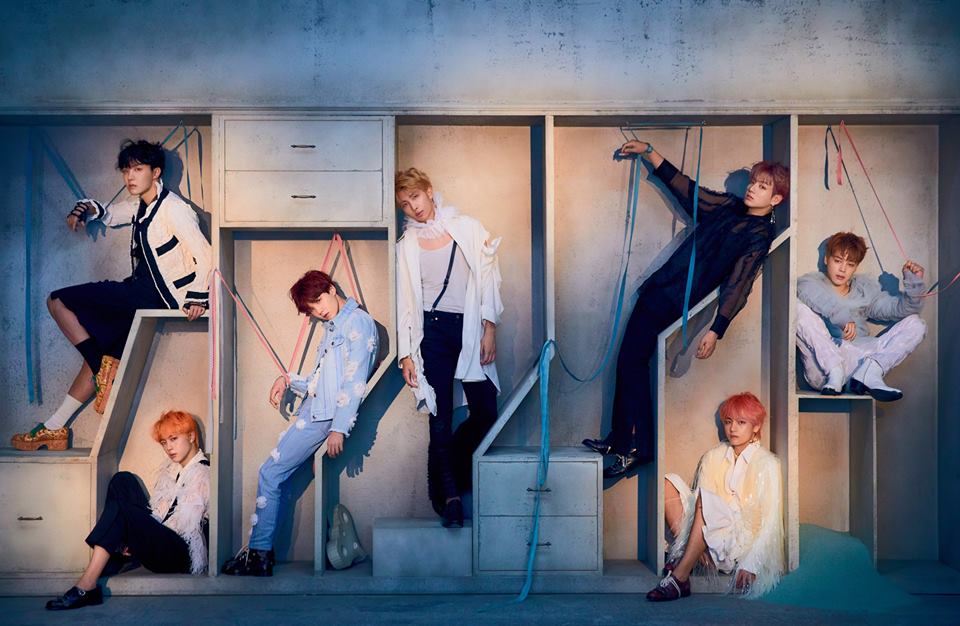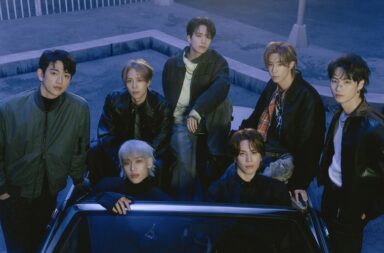 It’s been approximately a year since BTS dropped the highlight reels for the Love Yourself series. An extension of the storylines from The Most Beautiful Moment in Life and Wings, BTS took their audience on a journey with theory-laden music videos, meaningful and well-thought lyrics, and beautiful — albeit confounding — short films through the Love Yourself albums. The series aims to highlight how self-love is integral and important to anyone and everyone who is navigating through a relationship, and life in general.
It’s been approximately a year since BTS dropped the highlight reels for the Love Yourself series. An extension of the storylines from The Most Beautiful Moment in Life and Wings, BTS took their audience on a journey with theory-laden music videos, meaningful and well-thought lyrics, and beautiful — albeit confounding — short films through the Love Yourself albums. The series aims to highlight how self-love is integral and important to anyone and everyone who is navigating through a relationship, and life in general.
Love Yourself: ‘結’ Answer is the final part of the series. With a total of 25 tracks, it introduces seven new songs. The Love Yourself series is represented by the following phrase: ‘起承轉結’, which is a style of writing classical Chinese, Japanese, and Korean stories and poems. The conclusion of this series is represented by Love Yourself: Answer. Until Love Yourself: Answer had been released, I hadn’t realised how incomplete Love Yourself: Her and Love Yourself: Tear had been. While the latter albums only present a part of the story of loving yourself, Love Yourself: Answer goes a step further and doesn’t only conclude the entire series — but brings you throughout the entire journey. It doesn’t restrict itself to 結, or ‘conclusion’, but presents the entirety of ‘起承轉結’ — where 起 translates to ‘introduction’, 承 to ‘development’, 轉 to ‘twist/conflict’, and finally, 結 to ‘conclusion’.
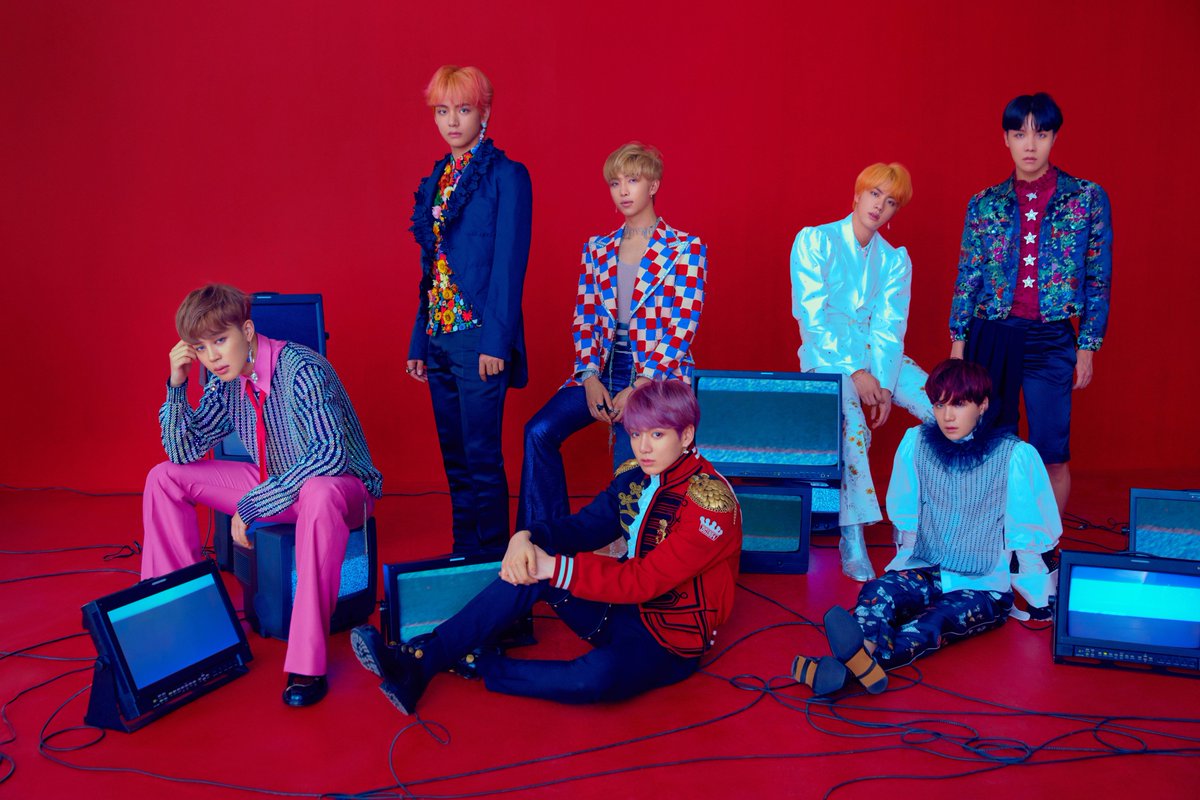 In Love Yourself: Answer, BTS released new songs meant for both the introduction and the conclusion of the entire storyline. Perhaps, this is to indicate that loving yourself is a continuous cycle, and there isn’t any specific end to this process, or that there isn’t really an introduction to the whole process — simply a realisation that you should try to love yourself.
In Love Yourself: Answer, BTS released new songs meant for both the introduction and the conclusion of the entire storyline. Perhaps, this is to indicate that loving yourself is a continuous cycle, and there isn’t any specific end to this process, or that there isn’t really an introduction to the whole process — simply a realisation that you should try to love yourself.
(Or, it’s entirely possible I’m reading too much into it.)
Either way, BTS introduces the journey of loving yourself with two dance-pop solos: Jungkook’s “Euphoria”, and J-Hope’s “Trivia: Just Dance”. Both of these feel-good songs attempt to show how one may neglect themselves when they start a new relationship. The songs have a sense of naivety and express fleeting, exhilarating feelings. “Trivia: Just Dance”, especially, highlights the excitement of a budding romance or friendship.
In my muddy life,
You were like a single stem flower.
Even this suffocating studio,
If we’re together, it turns into paradise.
My dreams, that once had no answer,
Now become something we can relate to.
Because our rhythm is matching
Because we have our dance, it’s a fate-like beat.
[…] I like the feeling of being with you.
I like the feeling of dancing with you.
I just wanna, wanna, wanna,
I really wanna, wanna, wanna,
Just dance.
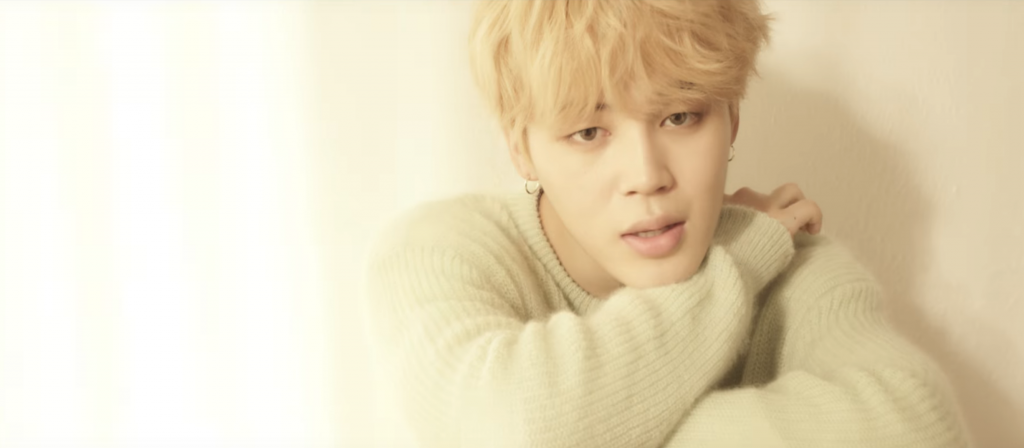 Though Jimin’s “Serendipity” has appeared on Love Yourself: Her, it presents itself as the bridge between the ‘introduction’ of a new relationship, and the ‘development’ of it on Love Yourself: Answer. The lyrics of this alternative R&B track go: “Don’t be nervous, take my hand. Now, we’ll become ‘us’. Let me love you.” Other tracks, like “DNA” and “Dimple”, further reiterate the message of being deeply in love without a care for anything or anyone else (even yourself).
Though Jimin’s “Serendipity” has appeared on Love Yourself: Her, it presents itself as the bridge between the ‘introduction’ of a new relationship, and the ‘development’ of it on Love Yourself: Answer. The lyrics of this alternative R&B track go: “Don’t be nervous, take my hand. Now, we’ll become ‘us’. Let me love you.” Other tracks, like “DNA” and “Dimple”, further reiterate the message of being deeply in love without a care for anything or anyone else (even yourself).
Along with “Her” and “Tear”, it’s RM‘s and Suga’s solos which cleverly help in making the entire album flow. “Her” lets the album transition from ‘development’ to ‘conflict’, and “Tear” from ‘conflict’ to ‘conclusion’. RM’s “Trivia: Love” seamlessly connects the first few tracks to “Her”. Though the lyrics of “Trivia: Love” are cute (and rife with wordplay), the hip-hop beat lets the album progress on to “Her”, which starts to bring a more melancholic vibe into the album; sadness and loss seeping into the concept of love.
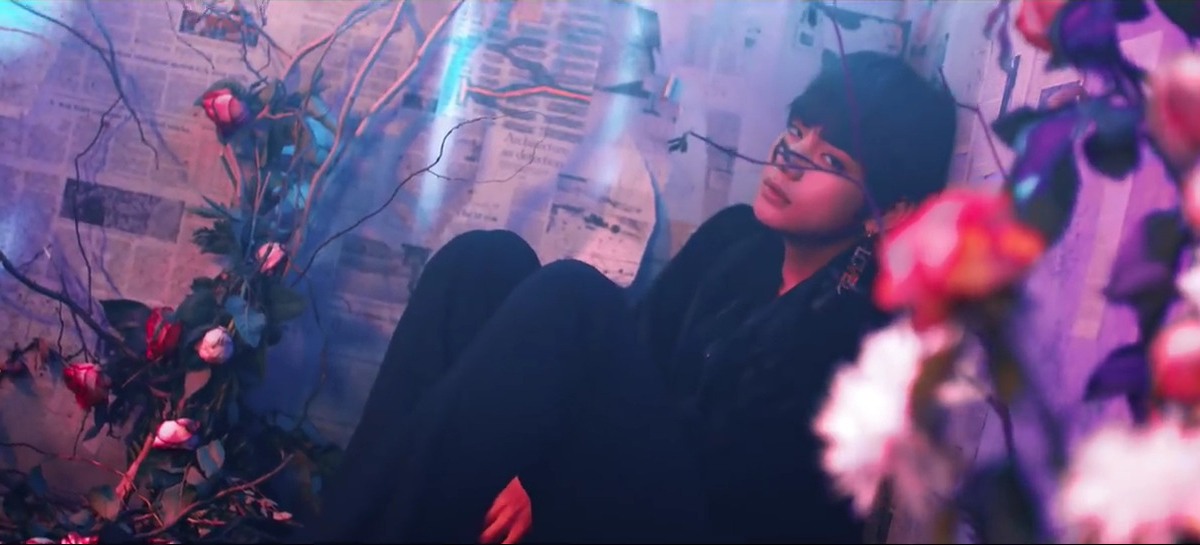 Similarly, the combination of Suga’s “Trivia: Seesaw” and “Tear” evolves the album into the ‘conclusion’ stage. The lyrics of “Trivia: Seesaw” point at the realisation that the protagonist’s relationship is causing too much harm to themselves for it to be worth it. It echoes the sentiments of V’s “Singularity”, along with “Fake Love”.
Similarly, the combination of Suga’s “Trivia: Seesaw” and “Tear” evolves the album into the ‘conclusion’ stage. The lyrics of “Trivia: Seesaw” point at the realisation that the protagonist’s relationship is causing too much harm to themselves for it to be worth it. It echoes the sentiments of V’s “Singularity”, along with “Fake Love”.
Let’s not drag things out, however our hearts may lead us. Are we getting out of here, or not?
This repeated seesaw game,
We have to stop it now.
(Hol’ up Hol’ up) I walk on this seesaw without you
(Hol’ up Hol’ up) Just like the beginning when you weren’t here
(Hol up’ Hol’ up) I walk on this seesaw without you
(Hol’ up Hol’ up) I’m getting off this seesaw without you.
“Tear” succinctly concludes the ‘(internal) conflict’ of one trying to recognise their own worth in a relationship: “I’ve woken up from the sweet dream and I close my eyes […] Although we used to talk about forever, now we break each other without mercy.”
Jin’s “Epiphany” picks up from “Tear”, and is possibly the most powerful and evocative in bringing across the realisation of loving yourself, and the importance of you in your life. The uplifting solo captures the essence of the ‘conclusion’ of loving yourself and does a wonderful introduction to the remaining new tracks.
I’m the one I should love in this world.
Shining me, precious soul of mine.
I finally realised so I love me.
Not so perfect but so beautiful.
I’m the one I should love.
That being said, “I’m Fine” and “Answer: Love Myself” are two other tracks that reflect the same message. BTS might not have introduced a wide array of new songs for this album, but the few songs that they did introduce are extremely effective in highlighting the message of loving yourself.
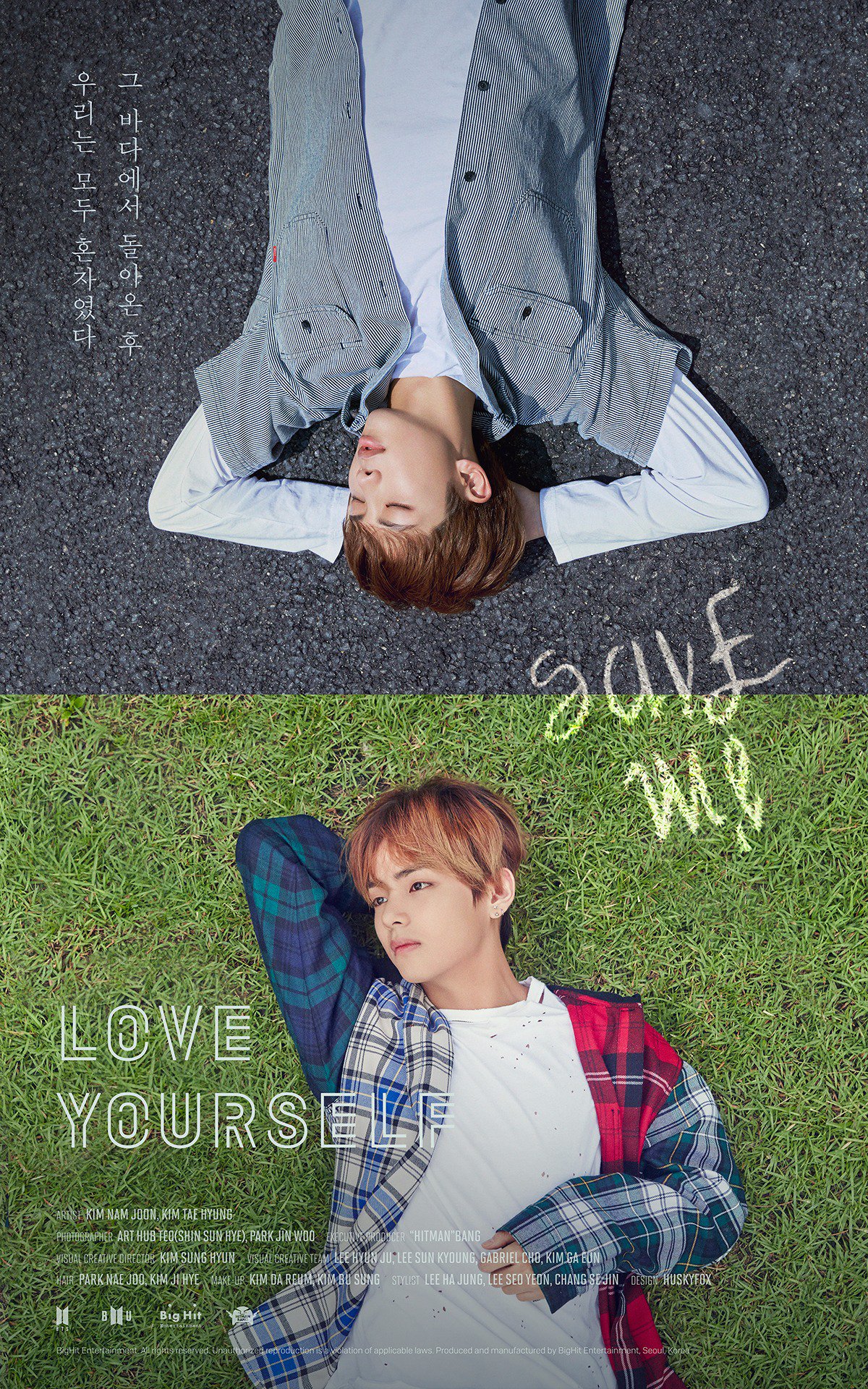 What’s interesting about “I’m Fine” is that it seems to be the antithesis to “Save Me” from The Most Beautiful Moment in Life. With the same few notes at the start of the song, just in different keys, the members of BTS bring special attention to the growth that is shown via these songs. Where “Save Me” goes, “In this pitch black darkness, you shine. Please extend your hand, save me. I need your love before I fall”, “I’m Fine” presents a contrast by saying, “the darkness of the night shakes me awake in my sleeping dreams. But I’m not afraid, I’m fine.”
What’s interesting about “I’m Fine” is that it seems to be the antithesis to “Save Me” from The Most Beautiful Moment in Life. With the same few notes at the start of the song, just in different keys, the members of BTS bring special attention to the growth that is shown via these songs. Where “Save Me” goes, “In this pitch black darkness, you shine. Please extend your hand, save me. I need your love before I fall”, “I’m Fine” presents a contrast by saying, “the darkness of the night shakes me awake in my sleeping dreams. But I’m not afraid, I’m fine.”
“Answer: Love Myself” is probably the most grounded song out of the track-list, with lyrics that feel the most relatable. It feels like a song that would play during the ending credits of a movie, where the protagonist has been through a self-discovery experience and realised a new side of themselves.
Loving myself might be harder
than loving someone else.
Let’s admit it.
[…] The me of yesterday, the me of today, the me of tomorrow
(I’m learning how to love myself)
With no exceptions, it’s all me.
“I’m learning how to love myself,” sing the members of BTS, as if to indicate that even after the whole journey and long process, loving yourself doesn’t come easy. And the fact that this concluding track only comes after 15 tracks indicates that even after great growth, we may still only be starting to learn to accept all versions of ourselves. There may be no definitive answer as to how to love yourself, but beginning to try to accept yourself might just be the answer in itself. We can only hope that one day we’ll reach the level of self-love in “Idol”: “You can’t stop me (from) lovin’ myself”.
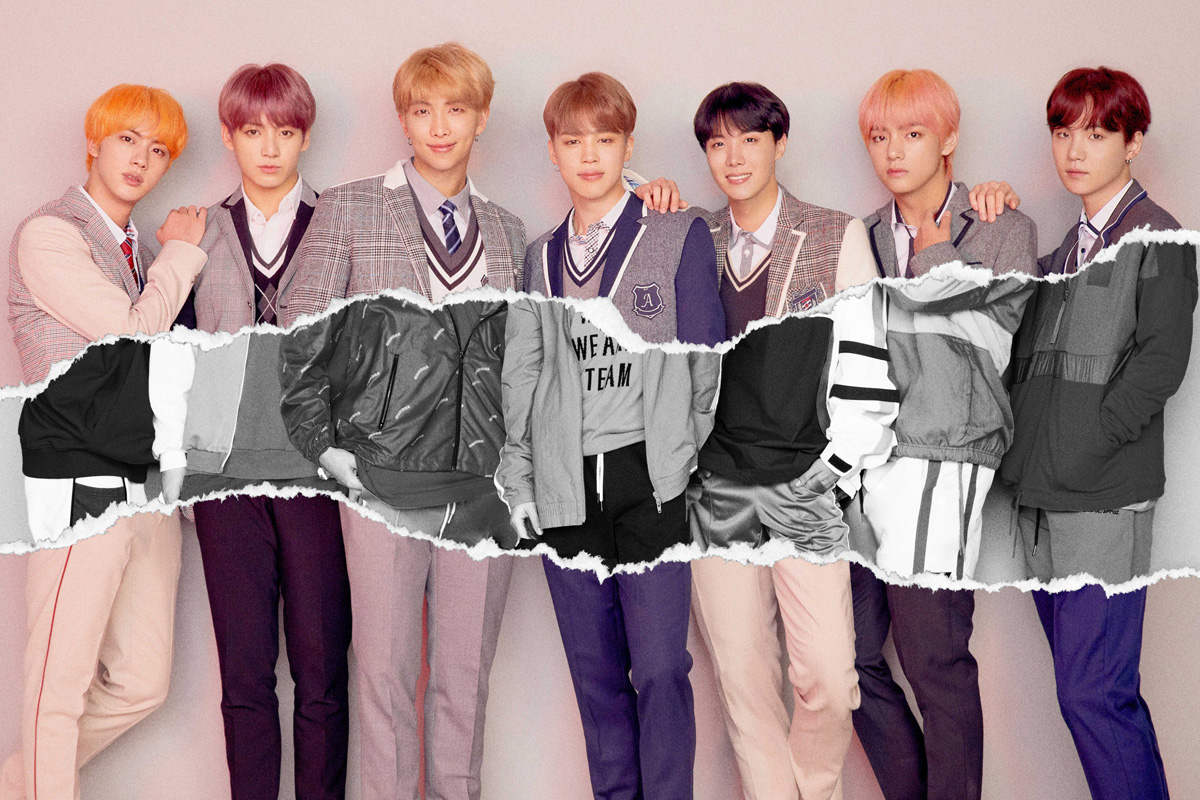 All in all, BTS chose the tracks which were essential to telling their story and collected them into the main disc. Though not every song may be a listener’s cup of tea, the decision to keep the attention on the collated 15 tracks was a wise decision, with B-sides and remixes pushed to the second disc. Instead of just providing a conclusion to a lengthy story, BTS and their creative team chose to pick what was truly needed to better get their message across and provided the entire story instead. Though I mourn the loss of track such as “Pied Piper” and “134340”, it’s a smart creative decision to be concise in the number of tracks to provide, especially with BTS’ focus on telling a story through their albums in recent years.
All in all, BTS chose the tracks which were essential to telling their story and collected them into the main disc. Though not every song may be a listener’s cup of tea, the decision to keep the attention on the collated 15 tracks was a wise decision, with B-sides and remixes pushed to the second disc. Instead of just providing a conclusion to a lengthy story, BTS and their creative team chose to pick what was truly needed to better get their message across and provided the entire story instead. Though I mourn the loss of track such as “Pied Piper” and “134340”, it’s a smart creative decision to be concise in the number of tracks to provide, especially with BTS’ focus on telling a story through their albums in recent years.
Staying true to the quality of their work, Love Yourself: Answer impressed with a consistent theme, honest lyrics, and a presentation of a wide range of genres.
(YouTube. Spearmint Suga. Lyrics via: Genius, BTS Trans. Images via: BigHit Entertainment)
